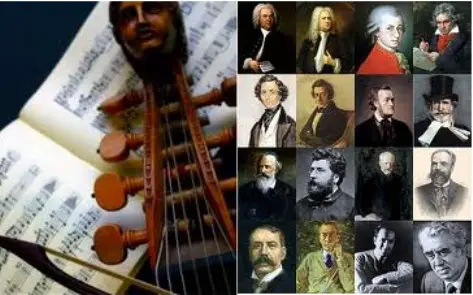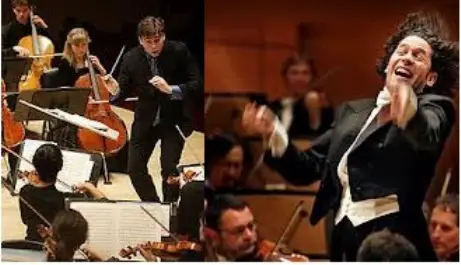
Listening to classical music is important for any musical student for several reasons. Even for non-musicians and children, there are several more benefits of listening to classical music. If you are a student, here’s how to listen critically and do it the right way, so that you become better as a musician.
Do People Like to Listen to Classical Music?
There are several projects being undertaken worldwide to revive interest in Classical music, especially among the younger lot who seem to be ignoring this form of music. In the UK, a massive new music project has started to try and get more of you into classical music.
BBC Ten Pieces was recently launched in schools across the UK. Its an exciting new initiative for primary schools, led by BBC Learning and the BBC Performing Groups, focusing on classical music and creativity.
So what do the current lot of music lovers feel about this genre of music?
Here are some comments from listeners of various age groups:
I think classical music can be soothing, but I end up falling asleep in opera. – Evan, Denbighshire
I prefer pop music such as Katy Perry, Demi Lovato and One Direction. – Brianna
I like classical music a lot more than pop music because it is much more peaceful. – Oscar, London
I play the piano and I love music. I also play the guitar, when I am at home I write new songs and sing. – Oliver, Wiltshire
I usually listen to pop music but I play classical music on the violin and I absolutely love it! – Eva, Ireland
Ever since I started to play the violin I have been loving classical music! My favourite piece is ‘Fantasy in D minor’ which is by Mozart. – Mya, London
I like classical music because it’s soothing and I like the different pieces that are played. – Jessica, London
Source: bbc.co.uk
Why Students Don’t Want to Learn Classical Music
Most students, when they begin learning, go through the basics such as reading notes, playing primary chords, learning about a few scales and so on. They are happy to play the easy songs that are provided in most method books.

Most of them are also very keen to play popular songs, including the latest hits. Or they want to play songs sung or composed by their favorite musicians.
But very few are eager to play classical pieces.
So why is it that most students don’t want to learn classical music?
There are several reasons for this.
Most Don’t Listen to Classical Music Often
One important reason is that because most children have not been brought up in an environment where classical music is played a lot.
So it is but natural, that a child may not recognize most of the classical songs.
On the other hand, with most of us spending a substantial amount of time in front of the television and listening to the radio, it is very easy to come in contact with pop songs. Some of them can be quite catchy and that is why we easily remember those songs, and also want to learn to play those songs on musical instruments.
The same doesn’t apply for classical music, even though there are radio stations that play classical music. It is not very popular.
You have to develop a taste for classical music.
Most Think It is difficult to Play
This is another misconception with most beginners / learners, who feel that it is difficult to play classical music.
But then why do they think it is difficult, and is it really difficult to play?
Not really!
It is just that most students who learn to play music, think that they can just master the instrument in a few months time, whereas the really is far different.
Beginners underestimate the time it takes to learn the various aspects of music.
Besides, most methods want students to start playing songs as soon as possible, so that those methods could be sold to more students and they could become more popular.
So they teach you a few scales; in fact to begin with just one scale. They will teach you the primary chords; again about 3 chords, and that’s it.
Armed with this knowledge, students start learning songs. And that fact is that, it is possible to play several songs using this method.
The only problem with this approach is:
Some students don’t want to learn more theory
That’s correct!
After knowing how to play a few songs using just few chords (mostly block chords), why would they want to go back to learning more chords, more left hand patterns, when they can play songs using just this basic information.
That is when, you expose them to classical music, they realize that their existing skills are not enough, and they need to practice their scales with both hands, learn major and minor scales, learn how to play chromatic scale, learn how to play octaves with both hands, and so on.
Now, these are not difficult to learn. But you know the mindset of the student now.
So when you give them any classical music or try to teach them some techniques required for playing classical, they start cribbing and say things like:
So how do you make it more attractive to students?
Importance of Learning Classical Music
As mentioned, classical music gradually grows on you, and it is like getting an acquired taste. As a teacher you need to focus on the positives of classical music.
It can be a bit of a hard work, but here’s what I would do.
- Find a good collection of the most popular classical songs; not the sheet but mp3 or CD so that you can make the students listen to those. There are many popular classical songs that are good to hear.
- Collate more information about some of the best composers: you may definitely start with Mozart and Beethoven, and explain to the students about their works, and their popularity.
- Get some of the latest blockbusters (epic movies such as Gladiator, Troy) and see how classical music is still used as background score in such movies. It just seems apt for such kinds of movies.
- Listen to the songs closely and see how they differ from popular songs and other styles of music. Try to point out the characteristics that make them sound different from the other styles, and so on. Basically, try listening to them critically.

Is this going to be enough?
Depending on how old the students are, and their temperament, this could work instantly or it may take time and happen over time.
But most adults and grownups should be able to appreciate the importance of classical music, and how it can help them become a better musician.
We are not taking about the therapeutical or brain-related benefits here; those definitely apply to most of us, including children.
But we are talking about music students here, and why is it so important for them to have knowledge of classical music.
Use it for Performance as Well as Composition
The more serious students can aspire to be classical music performers. Though, this can be a long journey and require several hours of practice regularly, it will give you lot of respect.
Classical music is seen as intelligent and formal music, and you can see that even the performers are always dressed very formally while performing.
But then not all the students may have the aptitude for this. Not everybody may enjoy playing a piece over and over again, to perfect it.
However, even if you don’t enjoy performing, it makes complete sense to know about the characteristics of classical music.
To Conclude
If you are serious about music, it is important to have knowledge of several genres of music, and that includes classical as well. Depending on what your interests are, getting more knowledge about classical music may require different approaches. If you are more keen on the compositional aspect, then you’ll have to focus more on music theory and also listen to lots of classical music to understand the characteristics. If you are keen to perform, then in addition to these, you’ll also need to practice a lot on your favorite music instrument (or train your vocals). So start listening to Classical Music at the earliest.
KeytarHQ editorial team includes musicians who write and review products for pianists, keyboardists, guitarists & other musicians. KeytarHQ is the best online resource for information on keyboards, pianos, synths, keytars, guitars and music gear for musicians of all abilities, ages and interests.



Leave a Reply